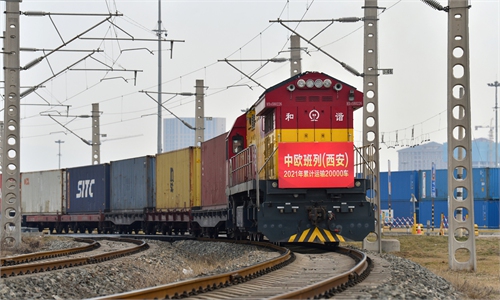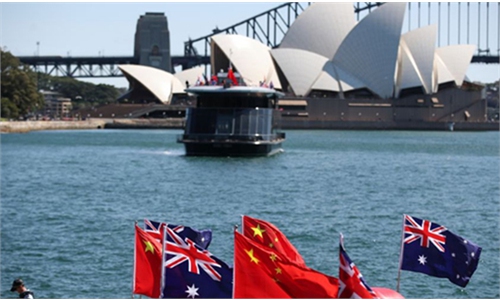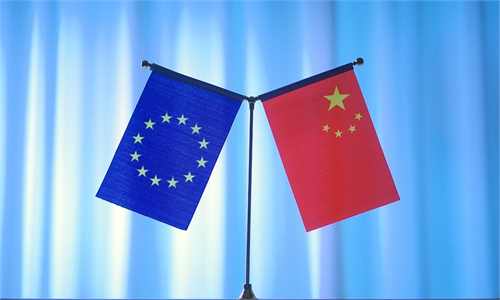
Illustration: Chen Xia/Global Times
An economic "decoupling" of the EU and Germany from China, the world's manufacturing powerhouse, would cost the German economy almost six times as much as Britain's exit from EU, or Brexit, Munich-based research group ifo Institute reported.By analyzing the economic impact of five scenarios, including the "decoupling" of major Western economies from China, the study conducted by the ifo Institute has showed how the path of so-called decoupling could inflict a colossal damage upon the German economy, which inevitably raises alarm bells for those in the EU that trumpets an unilateral decoupling of the EU from China.
As the US and China move toward some levels of technological decoupling - masterminded by Washington, the US is busy trying to coerce its allies to follow its steps to decouple from China, especially in strategic emerging industries such as semiconductors and AI.
The Voice of America (VOA) claimed in a report in May that cooperation between the US and the EU in high-tech fields has been further strengthened, and an economic "decoupling" of the US and EU from China in the high-tech arena is becoming "a reality."
Although the VOA report is very much exaggerated, a small group of politicians and scholars in the EU did fall into the US trap of buying into the "decoupling China" conspiracy. Some in the EU are calling for decoupling with China by reducing EU's dependence on Chinese industry and supply chains, and reviewing Chinese investments in strategic sectors for both economic and national security considerations.
However, a full economic "decoupling" between China and the EU is absolutely unrealistic, because the economic relationship between China and the world is like that of bones and flesh. What will be the result of a forced decoupling? The study by the ifo Institute can help the public get a general idea or intuitive sense: If EU is separated with China, the EU economy is expected to bear much bigger a loss, if compared with the UK's withdrawal from the bloc.
The Chinese and EU economies have become deeply intertwined over the past decades. China and the EU achieved a record $828.1 billion in bilateral goods trade in 2021, and in the first seven months of this year, China-EU commerce continued to grow by 8.9 percent. China has become the most important trading partner for many countries, including Germany.
Some EU economies are facing mounting challenges such as the COVID-19 pandemic, surging inflation, energy and food crisis and the risk of economic recession. It's astounding that some EU politicians and scholars trumpet the "decoupling China" conspiracy in face of such a dire economic outlook.
It should be noticed that there is a "temperature difference" between the US and the EU in dealing with China-related economic issues. China-EU economic relations have become increasingly interwoven and complex, just as the US begins to promote the sinister "decoupling China" scheme. Some EU politicians and scholars label China as a cooperation partner and economic competitor at the same time, while most politicians in Washington see China as a competitor or rival.
The dire prediction by ifo Institute would remind Germany and the broader EU to treat their economic and trade relations with China rationally and strategically. As two major economic forces in the world, China and the EU have many shared interests in maintaining their stable cooperative ties and industrial and supply chains. Refusing to be kidnapped by the US' decoupling push is necessary and reasonable for the EU, which will benefit all EU member economies, including Germany's.
The author is a reporter with the Global Times. bizopinion@globaltimes.com.cn



